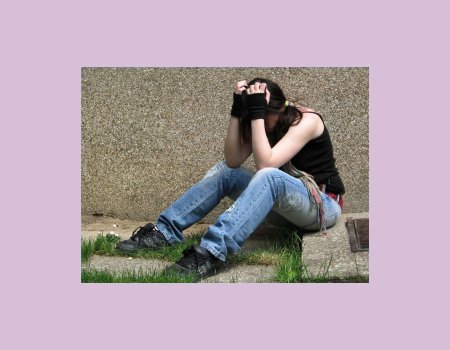
(4th ed.). Washington, DC: American Psychiatric Assoc.
Hypomanic and Major Depressive Episodes in Bipolar II Disorder must be distinguished from episodes of a 'Mood Disorder Due to a General Medical Condition'. The diagnosis is Mood Disorder Due to a General Medical Condition for episodes that are judged to be the direct physiological consequence of a specific general medical condition (e.g. multiple sclerosis, stroke, hypothyroidism). This determination is based on the history, laboratory findings, or physical examination.

Hypomanic Episode* - a distinct period during which there is an abnormally and persistently elevated, expansive, or irritable mood that lasts at least 4 days. This period of abnormal mood must be accompanied by at least three additional symptoms from a list that includes inflated self-esteem or grandiosity (nondelusional), decreased need for sleep, pressure of speech, flight of ideas, distractability, increased involvement in goal-directed activities or psychomotor agitation, and excessive involvement in pleasurable activities that have a high potential for painful consequences. (p.335)
Manic Episode** - a distinct period during which there is an abnormally and persistently elevated, expansive, or irritable mood. This period of abnormal mood must last at least 1 week (or less if hospitalization is required). The mood disturbance must be accompanied by at least 3 additional symptoms from a list that includes inflated self-esteem or grandiosity, decreased need for sleep, pressure of speech, flight of ideas, distractibility, increased involvement in goal-directed activities or psychomotor agitation, and excessive involvement in pleasurable activities with a high potential for painful consequences. (p.328)
Mixed Episode*** - a period of time (lasting at least 1 week) in which the criteria are met both for a Manic Episode and for a Major Depressive Episode nearly every day. The individual experiences rapidly alternating moods (sadness, irritability, euphoria) accompanied by symptoms of a Manic Episode and a Major Depressive Episode. The symptom presentation frequently includes agitation, insomnia, appetite dysregulation, psychotic features, and suicidal thinking. (p.333)
Major Depressive Episode**** - a period of at least 2 weeks during which there is either dperessed mood or the loss of interest or pleasure in nearly all activities. In children and adolescents, the mood may be irritable rather than sad. The individual must also epxerience at least 4 additional symptoms drawn from a list that includes changes in appetite or weight, sleep, and psychomotor activity, decreased energy; feelings of worthlessness or guilt; difficulty thinking, concentrating, or making decisions; or recurrent thoughts of death or suicidal ideation, plans or attempts.. To count toward a Major Depressive Episode, a symptom must either be newly present or must have clearly worsened compared with the person's preepisode status. (p.321) |
|
|


|

|
